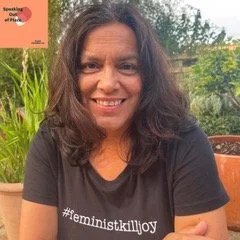Author of This Flame Within: Iranian Revolutionaries in the United States
So you start having Iranian students coming in the late 1950s. The numbers increased throughout the sixties and seventies. Tens of thousands of Iranian students, more than from any other country, come to the United States to study. At the moment, in 1979, the moment of the revolution, there were 50,000 or more students in the United States. So it's by far the largest foreign student population here. In the 1970s, it became possible for less affluent students to come. For the first time, there were more government scholarships available to certain groups of workers in the oil industry, for example, to their children. They were not blue-collar, but more like white-collar office workers. Before that, it had been mostly wealthy families who could afford to send their children abroad and who had access to education in the first place, but when you have less affluent students coming to less expensive, smaller colleges. By the 1970s, Iran had become so repressive that young people were trying to leave. They want to leave, and some of them want to leave intentionally to become activists and join the Iran student opposition movement.









